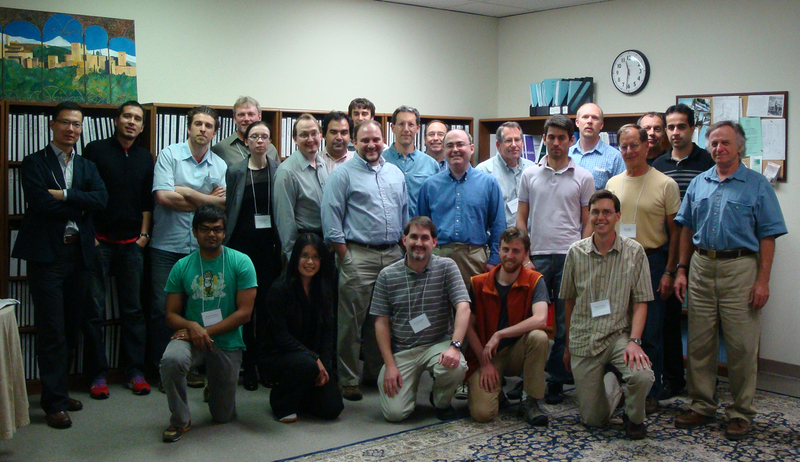
at the
American Institute of Mathematics, San Jose, California
organized by
Constantin Brif, Matthew Grace, Andrew Landahl, and Wayne Witzel
The field of quantum information involves the complex task of designing and effectively manipulating multi-qubit systems. One of the most critical difficulties besetting this task is corruption of quantum information caused by decoherence. Finding solutions to the decoherence problem, resulting from the unavoidable interaction of a quantum system with its environment, is one of the most significant challenges impeding scalable realizations of a quantum information processor. Current strategies for decoherence management were developed by researchers from three distinct communities within the quantum information sciences, namely, dynamical decoupling, optimal control, and quantum error correction. This workshop will enable researchers from these communities to identify, explore, and develop novel solutions, integrating classical and quantum resources for improved protection of quantum information processing. One crucial issue that will be at the focus of discussion is the need to maximize utilization of classical controls, which are a rich resource for the manipulation of quantum systems. By combining the expertise of each community, this workshop will address the decoherence problem from a unique interdisciplinary perspective.
The main goals of this workshop include (a) providing researchers with the collaborative opportunity to investigate the integration of methods from the fields of dynamical decoupling, optimal control, and quantum error correction and (b) identifying novel solutions with practical implementations that will decrease the error rate of quantum gates far below the threshold required for the fault-tolerant quantum computation. Since researchers in these fields have only recently begun to combine methods, this workshop will provide a crucial opportunity for an interdisciplinary forum in a largely unexplored area that could significantly impact the future of quantum information science. This necessarily involves developing hybrid methods to produce control solutions that are also characterized by a high degree of robustness to fluctuations in the control field and/or processor uncertainties.
The workshop schedule.
A report on the workshop activities.
Papers arising from the workshop: